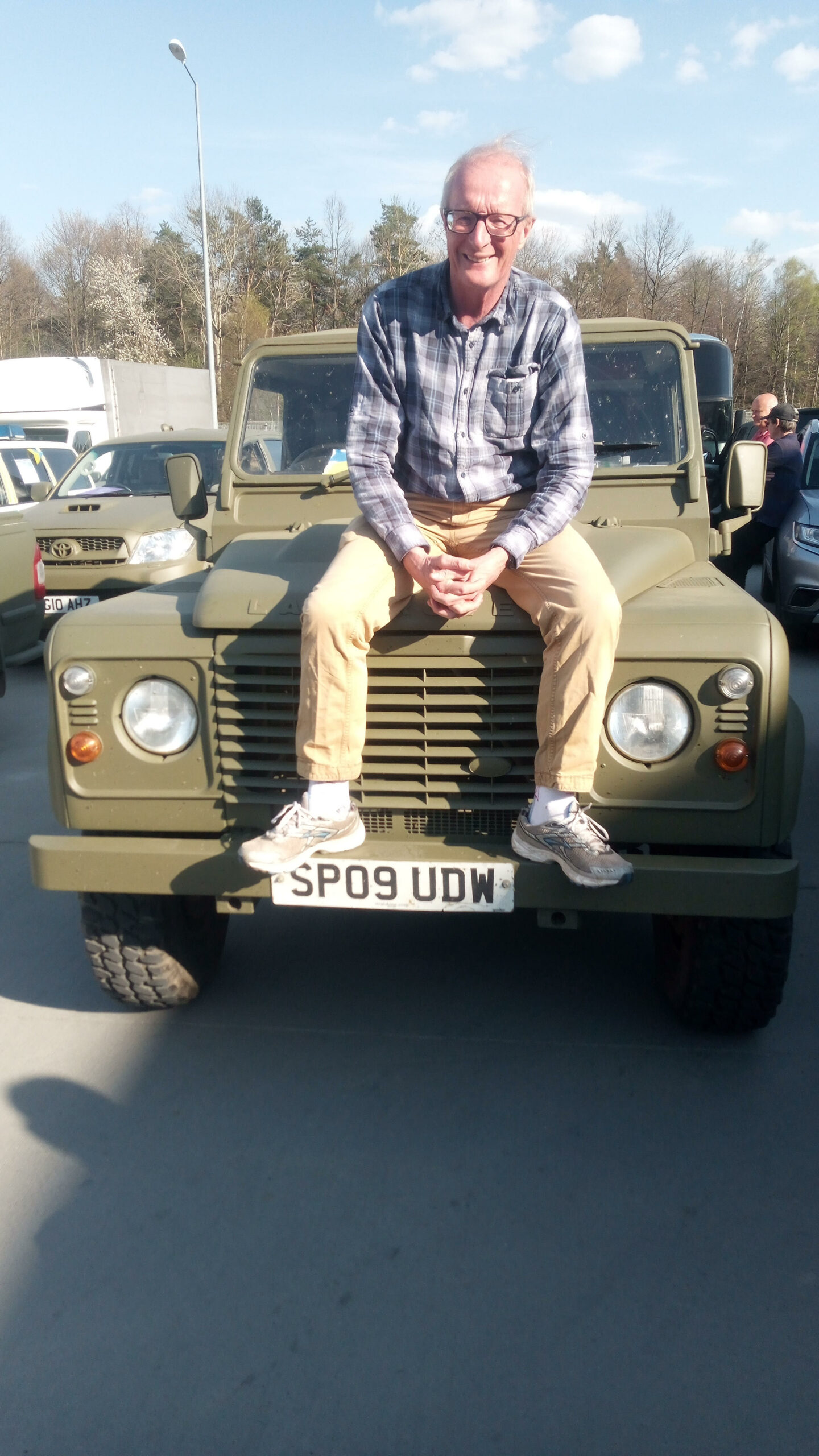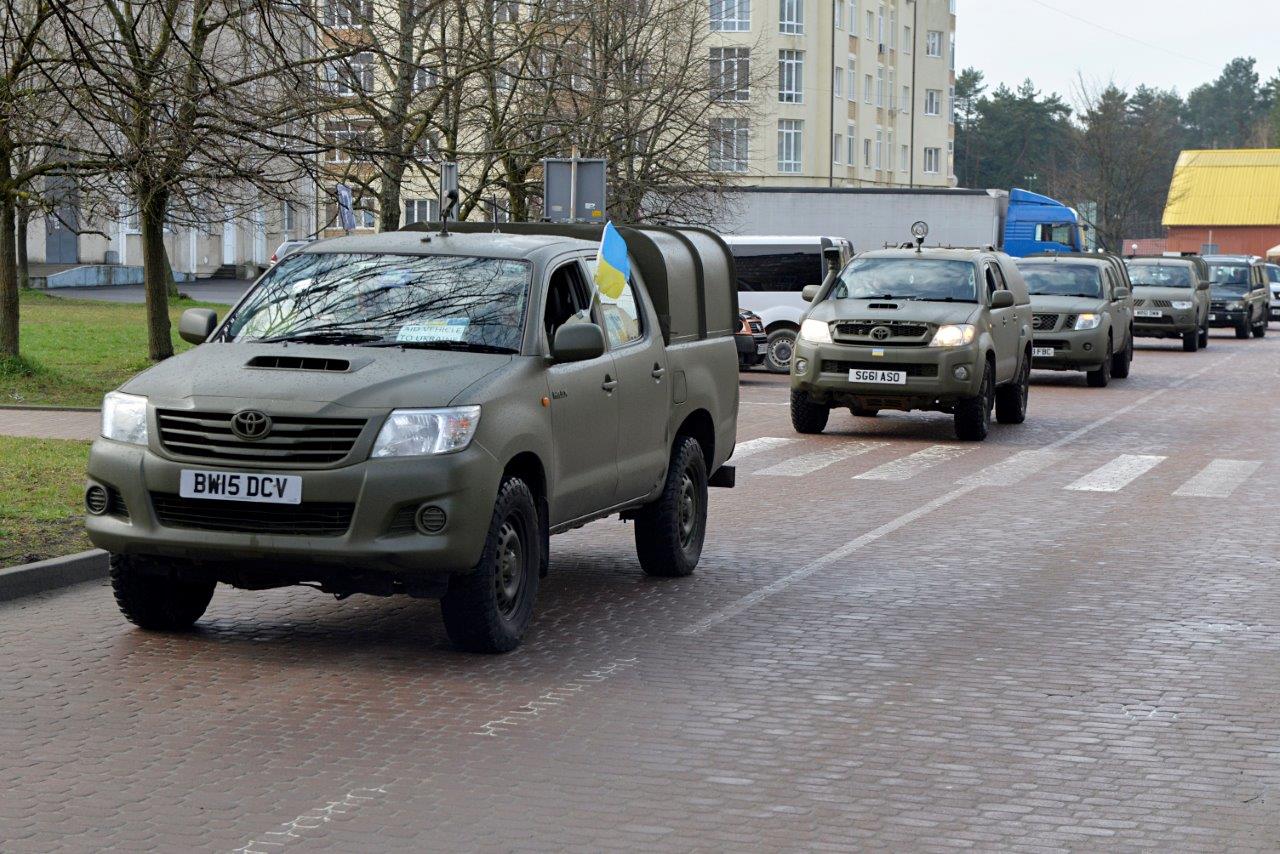Scottish charity Pick-ups for Peace has just delivered its 100th truck to help Ukraine in its war efforts against Russia.
Felix Petit speaks to co-founder Keith Dawson to find out more about the organisation.
As I sit down with Dr Keith Dawson, co-founder of Pick-ups for Peace, he has just returned from Ukraine where he has delivered the third convoy of trucks loaded with equipment to help in the war against Russia.
The Scottish charity, led by British farmers, has donated 100 pick-ups to the war effort since February, with volunteers, from teenagers to pensioners, making the drive to the city of Lviv.
‘This most recent convoy has taken the number of pick-up trucks donated to the Ukrainian war effort by Pick-ups for Peace past the “pie in the sky” number of 100’, said Keith.
‘It is an incredible honour and a privilege to visit and help these people.
‘They are fighting for all of us.
‘Their strength and resolve has not wavered since the war started and they know what they are fighting for’
Ukraine means a lot to Keith who has been working there for 20 years.
Keith and two of the charity’s other co-founders, Mark Laird and Alastair Stewart, are senior directors in Central Plains Group, a sustainable farming business with significant interests in Ukraine.
The team has 900 hectares of potato fields in Ukraine near Lviv, as well as a starch production factory.

Dr Keith Dawson sitting on the bonnet of a donated Land Rover Defender.
‘I’ve been working in Ukraine for two decades and it is a country that means an awful lot to me’, said Keith.
‘We have a very strong local team there who work for Central Plains Group.
‘The potato farms we have out there still pick up second world war grenades during harvest, they are the same size as the potatoes.
‘So the number of butterfly mines that are released from the air in this conflict is going to have an effect for generations to come.’
They have been helping their workers in Ukraine since the conflict with Russia started in 2014.
In 2022 when the war broke out they began to increase their help, with the first charity convoy heading over in February this year.
The vehicles are painted khaki green and still have British number plates so are recognisable to Ukrainians as they head towards Lviv

Pickups for Peace convoy, the vehicles are painted a military khaki
‘We’ve had people of an age range of 18-74 driving the vehicles over to Lviv, it’s great to see people of all ages on the convoys and the fellowship that that generates’, Keith said.
‘Once we cross into Ukraine it’s very humbling to see the people on the roads saluting, cars on the other side of the road pull over as a mark of respect.
‘It is hugely important to the Ukrainians that they are not forgotten
‘One of the things we do is go and visit the war graves in Lviv.
‘Although it’s an adventure, for some of the youngsters on the convoy they saw lads of their own age newly buried who had died on the front line during our drive over from Britain.
‘I was on the first convoy of supplies and vehicles in February of this year and now I have just returned from the fourth one in mid-may.
‘Since the first one the cemetery in Lviv has extended considerably down the hill such is the number of new graves that have been dug.
‘This is only 15 hours drive from Britain, barely a thousand miles from the channel crossing’
Pickups for Peace has soared past its initial goal of delivering 100 supply-filled vehicles to Ukraine, so what’s next for the initiative?
‘We have set a new target of 200 pickups to be delivered to Ukraine, we hope that peace is achieved before we reach that milestone.
I ask Keith if he has plans to take part in yet another convoy out to the east – he says he will next travel to Ukraine sometime in June.
‘One of my motivations for going out on these convoys is my three granddaughters’, said Keith.
‘I want them to grow up in a rules based world where laws are observed.’
If you are able to donate money or equipment please get in touch at pickupsforpeace@memus.com
https://www.nfuonline.com/media/lurh3oy4/pick-ups-for-peace-9-mar-23.pdf
Read more news and reviews on Scottish Field’s culture pages.
Plus, don’t miss the June issue of Scottish Field magazine.
TAGS

